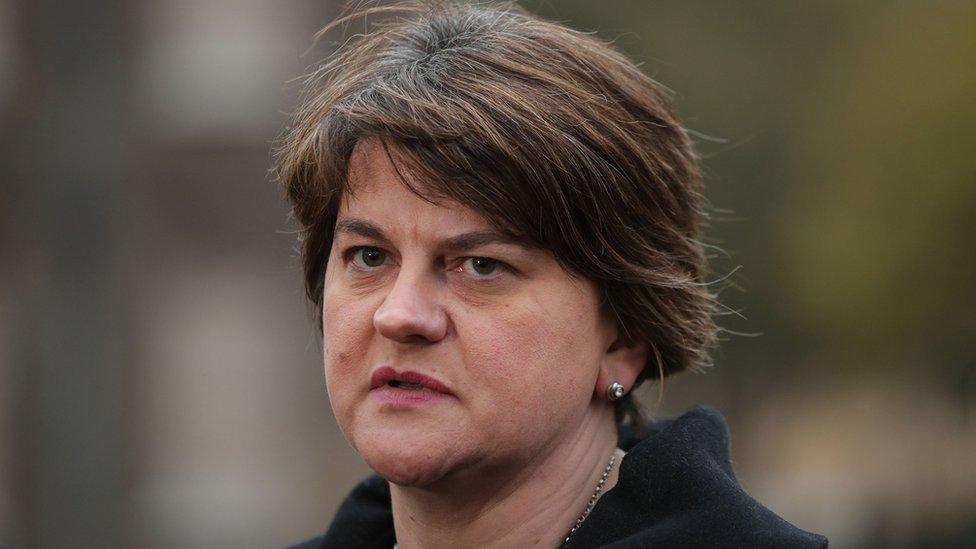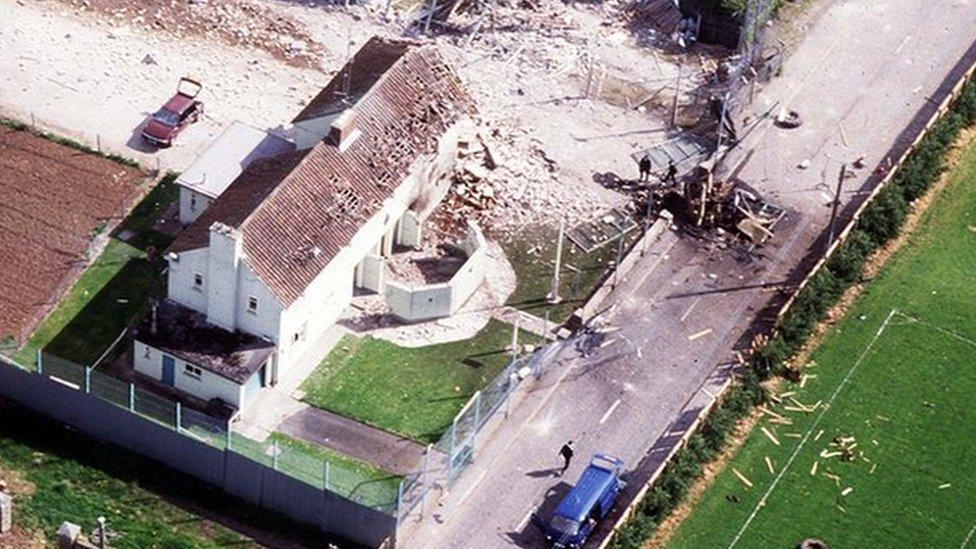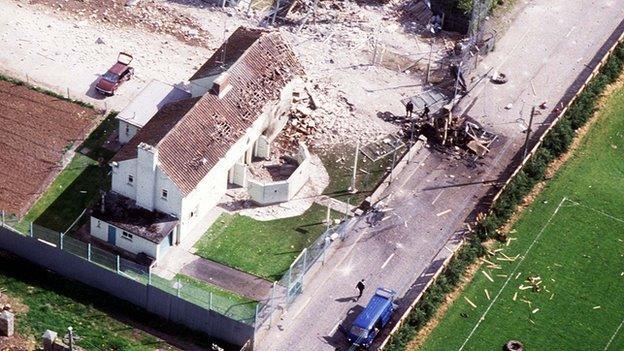Arlene Foster liable for costs in case over legacy funding
- Published

A judge previously found that Arlene Foster's decision to block funding for legacy inquests was unlawful and flawed
Arlene Foster is liable for costs in a case where she was found to have unlawfully blocked a plan aimed at clearing a backlog of legacy inquests, a High Court judge has ruled.
Sir Paul Girvan's ruling follows his decision that blocking the funding was unlawful and flawed.
He said the UK has failed to deal with delays in carrying out legacy inquests.
He directed the Department for Justice and the Northern Ireland secretary to reconsider extra resources for them.
The judge also said that his order will provide civil servants with certainty about their legal duties, so they will not be restrained by a belief they are in some way bound by the views of past or future Stormont ministers.
Making an order for costs against all respondents in the case, including Mrs Foster, the judge ruled that she will also be separately liable for making earlier applications to be taken out of the case and to have him stand aside as the judge.
The rulings came in a case brought by the widow of an innocent civilian shot dead along with eight IRA men in Loughgall, County Armagh in 1987.

Brigid Hughes' husband Anthony was innocently caught up in an IRA bomb attack on Loughgall RUC station in 1987, when undercover soldiers opened fire on the IRA gang
Brigid Hughes had challenged the failure of the Executive Office at Stormont, the Department for Justice and the Northern Ireland secretary to put in place adequate funding to prevent further delays in holding legacy inquests.
Her husband Anthony died in May 1987 when he was innocently caught in crossfire between soldiers and the IRA as republicans attacked Loughgall police station.
'Mere declarations'
Anthony Hughes is one of the deaths that would be covered by the lord chief justice's proposals.
Setting out his reasons for compelling action, Sir Paul Girvan said the United Kingdom authorities have failed to effectively deal with delays and shortcomings in carrying out inquests into Troubles related killings.
The court was told that mere declarations lacked the impact to address the issue and the point had been reached for more intrusive, coercive steps to address continued breaches of human rights law.
The judge also said that the Executive Office, Department for Justice and Northern Ireland secretary must consider what steps should be taken to ensure the tribunals can be carried out in a way that meets legal requirements.
Lack of consensus
More than 50 legacy inquests remain outstanding, with potentially 72 more cases on the Attorney General's desk for consideration.
Although the Stormont House Agreement included a £150 million package to deal with all legacy issues, the UK government has said financial resources will not be released until political consensus is reached on dealing with the past.
The Troubles legacy negotiations have been a long-running issue, and featured on the fringes of the most recent talks which collapsed on Valentine's Day.
- Published16 March 2018

- Published8 March 2018

- Published5 September 2017

- Published19 March 2015
